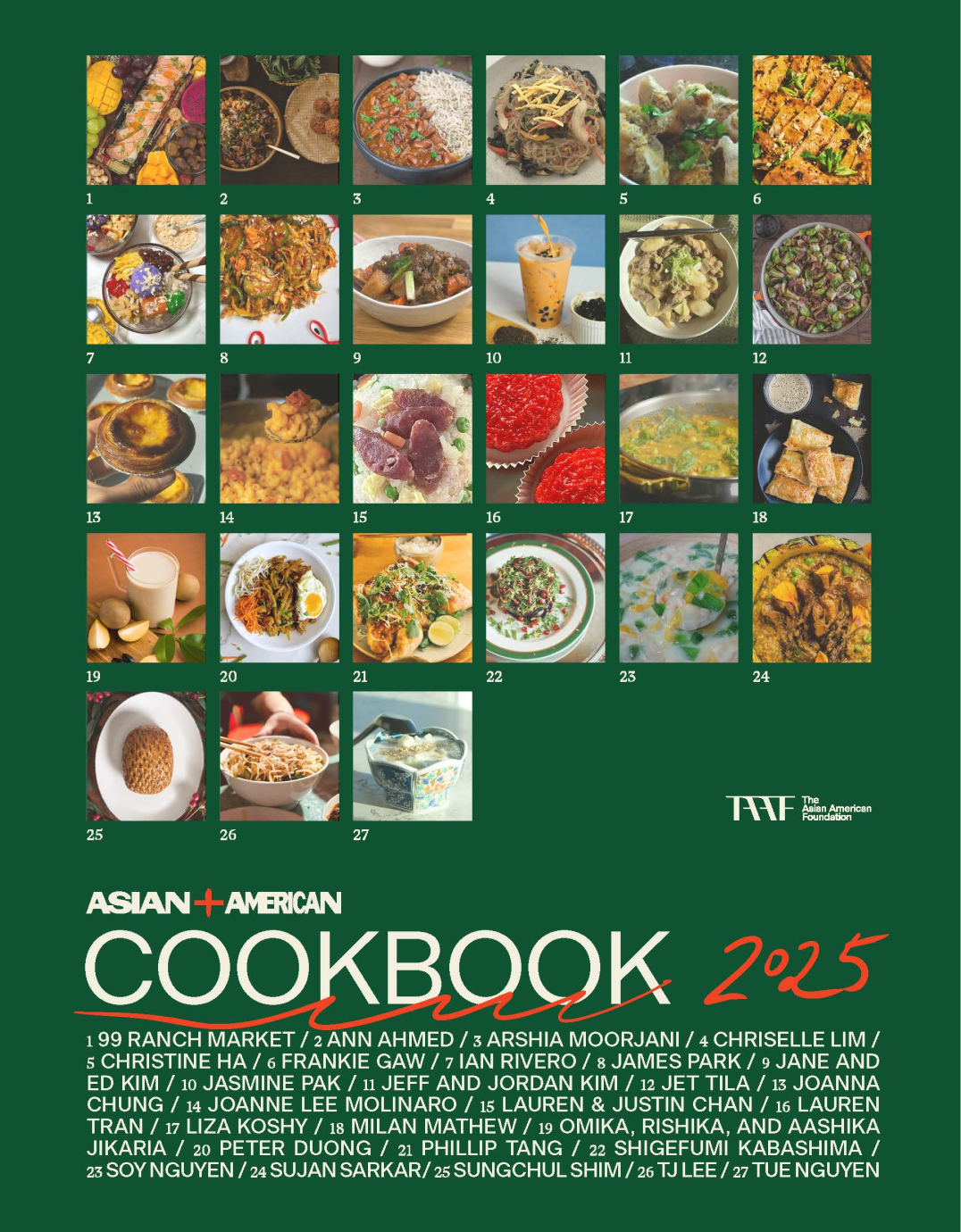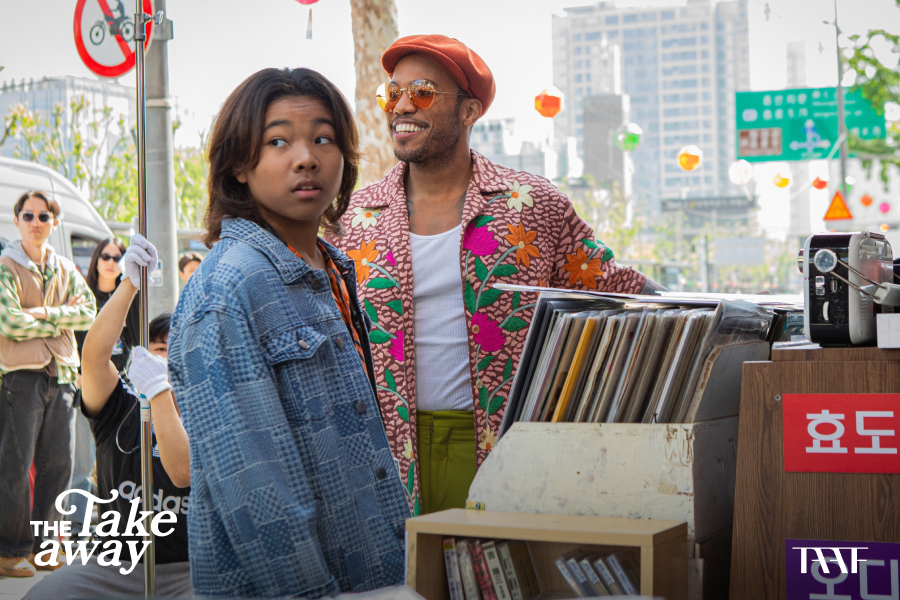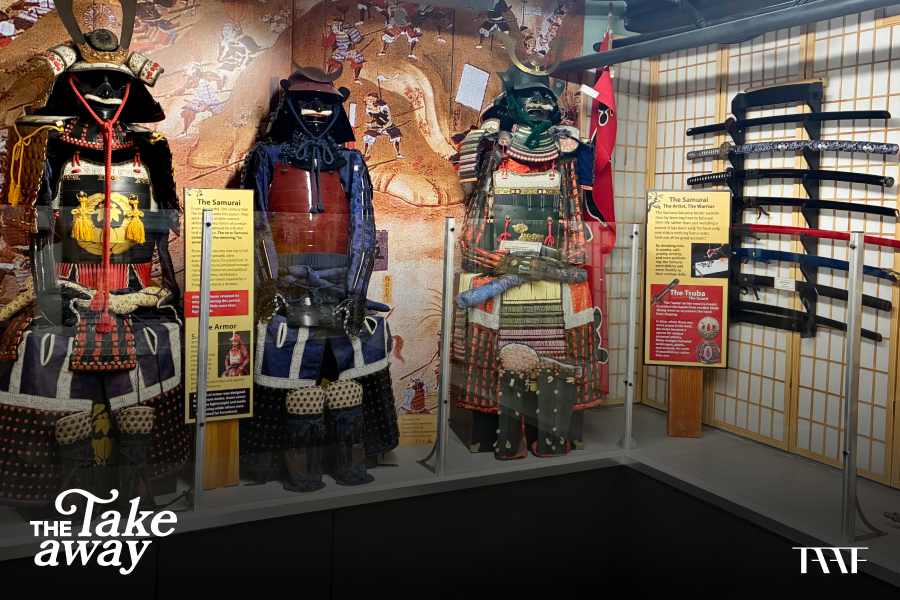














Photo credit: Simon Krenk
Chef Christine Ha Brings Cultures and Flavors Together Around the Dinner Table
Christine Ha is an award-winning Vietnamese American chef, writer, and TV host. She was also the first blind contestant on MasterChef, and the winner of the show’s third season. Her recipe for Vietnamese egg rolls appears in TAAF’s new Asian+American Cookbook.
As a child, Christine Ha struggled with identity in a way many first generation Asian Americans can relate to—not feeling Asian enough at home, and not feeling American enough at school. Ha was only allowed to speak Vietnamese at home, but she worried that she didn’t know the language as well as her parents. And when she went to school, she felt self-conscious bringing fish sauce and pork belly for lunch instead of a bologna and cheese sandwich.
Those experiences are why Ha felt it was so important to contribute to TAAF’s Asian+American Cookbook. Ha explained, “I didn't learn to embrace the intersectionality of being able to be both Asian and American until much later in my life…I think being part of this project is reinforcing that notion that it's okay to be at that intersection, and it's okay to identify with both cultures at the same time.”
.JPG)
For Ha, it wasn’t always in the cards that she would become a chef, let alone open a Vietnamese restaurant. In fact, she didn’t learn to cook until she was in college. “I was an only child, and my mom made a lot of great home-cooked Vietnamese food that I took for granted. She died when I was 14 and never wrote down a single recipe. I was so young and I didn't really care to learn to cook at that age. I thought I had the rest of my life to learn from my mom.”
It was when Ha started living off-campus in her sophomore year that she quickly realized she needed to learn how to cook. She decided to try and reverse-engineer her mother’s dishes, buying cookbooks and attempting Vietnamese recipes through a process of trial and (often) error. She gave herself one final shot with a Vietnamese ginger-braised chicken recipe, vowing that if it wasn’t successful, she would give up on trying to cook. The dish was a big hit with her roommates and friends.
“I had vision then, and I remember looking around the table and seeing everyone's faces satiated, and that's what initially sparked the joy of cooking in me. I realize now in hindsight, there's something very fulfilling and innate in my personality about serving other people and making other people happy through something I've created.”
But life had a big change in store for Ha. It was after college, during Ha’s first job in the corporate sector, that she began to experience vision loss. It took four years to be correctly diagnosed as having neuromyelitis optica, or NMO, an autoimmune disease similar to MS where the overactive immune system attacks the nervous system.
“Over a period of several years, I started losing my vision gradually, and then I had to deal with the disease attacking my spinal cord. There were periods of time when I would be paralyzed from the neck down. I took leave from my job, and what I thought was going to be a short leave turned into long term disability, and then it turned into a complete resignation from my job.”
While Ha did eventually regain the use of her hands, and was able to walk again, she never fully regained her vision. In her 20s, while concentrating on how to get better and figuring out what to do next in her life, Ha decided to switch careers. She chose to do something she had always loved, and got a Master’s degree in creative writing.
.JPG)
It was during her last semester in grad school that she auditioned for MasterChef, thinking that at the very least it would be an opportunity to get great material for her creative writing workshops. She wasn’t expecting to win, but her family encouraged her to audition so that viewers could see how someone with a vision impairment could still be capable in the kitchen. Ha surprised everyone, including herself, when she won the season in 2012. And it proved to be the launch of the culinary side of her life journey.
“That gave me a lot of opportunities to write my first cookbook. I'm working on my second cookbook right now, which is more an homage to my heritage and my family. There are a lot more Vietnamese and Asian recipes in this upcoming cookbook,” Ha told me. “I got to judge MasterChef Vietnam, and it culminated in being able to open a modern Vietnamese restaurant in Houston called The Blind Goat, and then my second restaurant, which is like the tribute to my American side, which is a smash burger and American creative sandwich concept called Stuffed Belly, also located in Houston.”
For TAAF’s Asian+American Cookbook, Ha shared her recipe for chả giò, or Vietnamese egg rolls, a favorite dish that her family used to make at Thanksgiving. In the book she talks about sharing the Thanksgiving table with her Korean in-laws, and how together they have created new culinary traditions. I asked her how she plans meals for family gatherings that incorporate different backgrounds.

“For Thanksgiving, I do all of the traditional American dishes, with a southern bent. So there's Cajun fried turkey, there's broccoli rice casserole, there's stuffing. I leave the Korean part to my mother-in-law, so she'll bring something like gochujang sticky wings, or japchae. Sometimes she'll bring kimbap, sometimes there's kimchi on the table as well. And then for other holidays when we get together, we may have egg rolls or other Vietnamese dishes. Both my in-laws and my parents were immigrants to the US. My husband and I are first generation Asian Americans, so our holiday tables are always this landscape of cultures.”
Making the shared meal welcoming to everyone is key. As Ha explains, it’s an opportunity for an inclusive table that features both familiar and new dishes.
“Food really is universal and brings everybody together, so it doesn't really matter what country you're from, or what language you speak. That's why I think it's important for everybody to have something that they recognize, but also try new things at the table.”
You can download your free copy of our Asian+American Cookbook here. And we invite you to share the stories and traditions represented on your Thanksgiving table by tagging @taaforg on our socials and using the hashtag #AsianPlusAmerican
.png)



